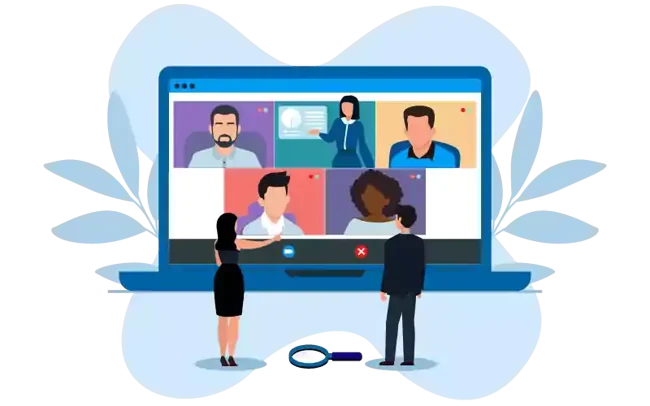Financial Services Webinars: Building Trust in a Digital Age

In today’s hyperconnected world, the financial services industry is undergoing rapid transformation. Traditional, face-to-face interactions that once built confidence are increasingly being replaced by digital engagements. While this shift unlocks new opportunities for scale and efficiency, it also raises a fundamental question: how can financial institutions build and sustain trust in a digital age?
One powerful answer lies in webinars. Thoughtfully designed, webinars offer financial service providers a unique platform to educate, engage, and establish credibility with both existing clients and prospects. By leveraging this digital format, firms can replicate the value of in-person trust-building while taking advantage of the accessibility and personalization that modern audiences expect.
The Importance of Trust in Finance
Trust has always been the cornerstone of financial services. Clients entrust institutions with their life savings, investments, and future security. A single breach of confidence — whether due to poor communication, lack of transparency, or perceived incompetence — can lead to lasting reputational damage.
In an era where fintech disruptors, digital-only banks, and AI-driven platforms are multiplying, clients demand clarity, authenticity, and security. Webinars provide the means for financial firms to showcase these attributes while positioning themselves as reliable guides in an increasingly complex landscape.
Webinars as a Trust-Building Tool
1. Education Through Transparency
Clients often feel overwhelmed by industry jargon, regulatory changes, and market volatility. Webinars give institutions the opportunity to demystify these challenges. For example, sessions explaining the impact of interest rate changes, retirement planning strategies, or cybersecurity risks in online banking help clients feel informed and empowered. Transparency in communication translates directly into stronger trust.
2. Humanizing Digital Interactions
Unlike static emails or blog posts, webinars feature real people — executives, advisors, analysts — speaking directly to an audience. This face-to-face connection, even through a screen, helps humanize institutions that might otherwise feel distant. The ability for participants to ask questions live reinforces authenticity and shows that the institution values dialogue, not just one-way communication.
3. Demonstrating Expertise
Thought leadership is a key driver of credibility. By hosting webinars on trending topics — such as ESG investing, digital asset management, or regulatory compliance — financial institutions showcase their expertise. The presence of industry experts, economists, or guest speakers strengthens authority and reassures clients that they are partnering with a knowledgeable provider.
4. Engagement Beyond Transactions
Webinars offer a platform for engaging with clients beyond day-to-day financial transactions. Polls, Q&A sessions, and post-webinar surveys turn passive listeners into active participants. This level of interaction nurtures a sense of community and makes clients feel heard, laying the groundwork for long-term loyalty.
Best Practices for Trust-Building Webinars
To maximize their impact, financial services webinars should follow several best practices:
- Focus on Value, Not Sales: Trust is earned by addressing client needs, not pushing products. Educational content should take precedence over marketing.
- Prioritize Security: Since sensitive financial topics may be discussed, secure platforms with clear privacy policies are essential.
- Leverage Storytelling: Sharing real-world case studies or success stories resonates more than abstract data. Stories show how financial strategies work in practice.
- Follow Up Thoughtfully: A post-webinar email with key takeaways, resources, and a recording reinforces the message and keeps the trust-building journey going.
Looking Ahead
As digital engagement becomes the norm, webinars will continue to evolve as a cornerstone of financial services communication. AI-powered personalization, interactive dashboards, and hybrid webinar formats will only enhance their ability to create meaningful, trustworthy experiences.
Ultimately, clients want more than financial products — they want confidence, clarity, and connection. Webinars, when executed with authenticity and value, deliver exactly that. By embracing webinars as a trust-building tool, financial institutions can bridge the gap between digital convenience and human connection — proving that trust is not lost in the digital age but redefined for
Read More: https://intentamplify.com/
- Art
- Causes
- Crafts
- Dance
- Drinks
- Film
- Fitness
- Food
- Games
- Gardening
- Health
- Home
- Literature
- Music
- Networking
- Other
- Party
- Religion
- Shopping
- Sports
- Theater
- Wellness




